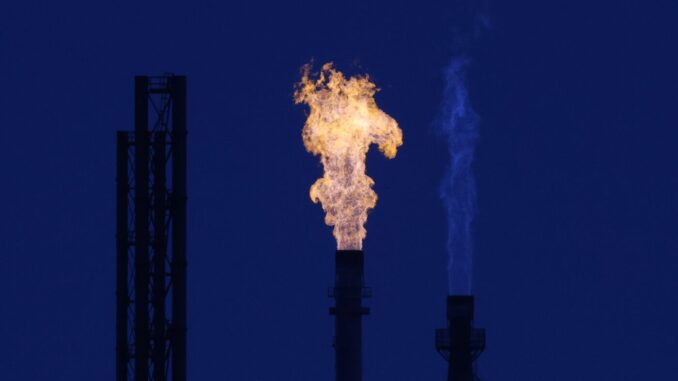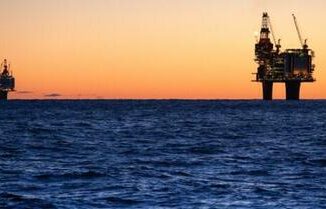
The UK’s oil and gas regulator is laying out stricter guidelines for producers to reduce emissions or risk losing out on regulatory approvals.
An updated emissions plan “makes it clear that for production to continue in the North Sea, it must also become cleaner,” the North Sea Transition Authority said in a report published Wednesday. Operators shouldn’t expect approvals if they could curb emissions and choose not to, it added.
Britain is seeking to become carbon neutral by mid-century and agencies across the spectrum of government are looking for ways to meet the climate goal. Electrification and installation of low-carbon power on oil and gas fields underpin NSTA’s plan to reduce pollution.
BloombergGreenSewage Spills into Waterways Hit Record in England in 2023El Nino May See First South Africa White-Corn Imports Since 2017Germany’s €23 Billion Green Experiment to Save Its Industrial EconomyFast Fashion Retailers Asos and Boohoo Forced to Clarify Green Claims
Emissions from the production of the two fossil fuels account for about 3% of the UK’s total greenhouse gas emissions, the bulk of which are from power generation on fields.
New developments that expect to start producing oil or gas after Jan. 1, 2030 must be fully electrified or run on an alternative low-carbon power “with near equivalent emissions reductions,” the report said. Those developments expecting the first hydrocarbons before that date should at least be “electrification ready” by the time production starts.
In cases where operators don’t electrify existing assets where NSTA considers it reasonable to do so, operators “should have no expectation” that the regulator will approve field development plans, amendments or allow access to additional hydrocarbons from the unit.
“Where the NSTA considers it not reasonable to electrify an existing asset, relevant persons must still pursue other power emissions reductions,” it said.
The regulator in 2021 placed an obligation on the oil and gas industry to help the UK reach net-zero target. Neither that directive nor the updated report Wednesday address so-called scope 3 emissions, which are produced through the consumption of fossil fuel-derived products such as gasoline and diesel. The vast majority of greenhouse gas emissions produced from hydrocarbons are scope 3.



